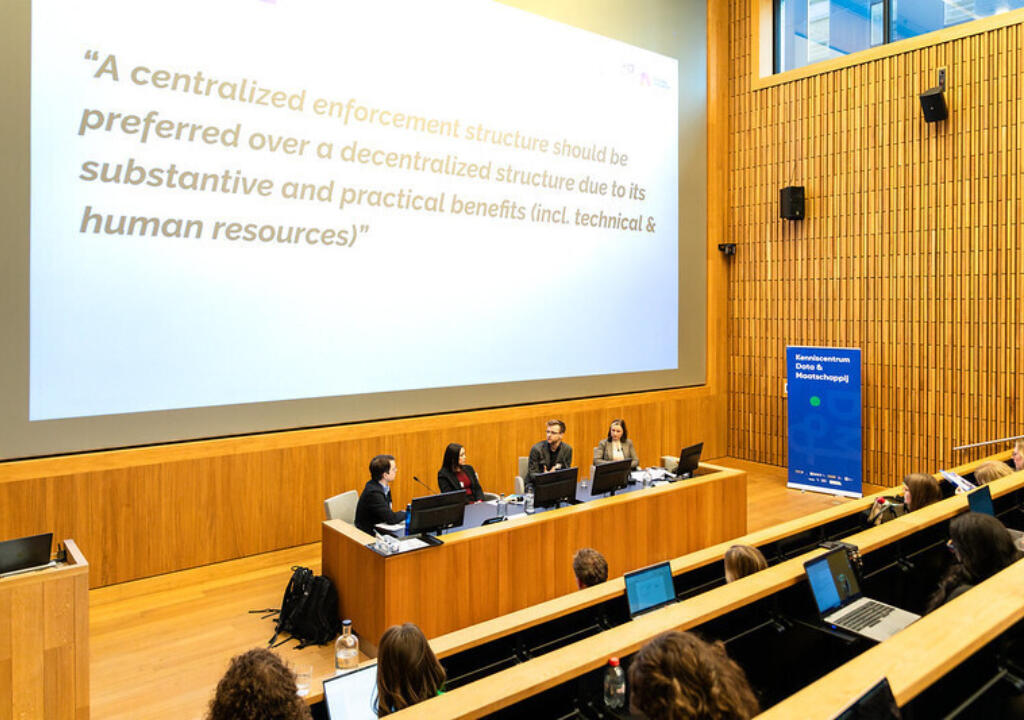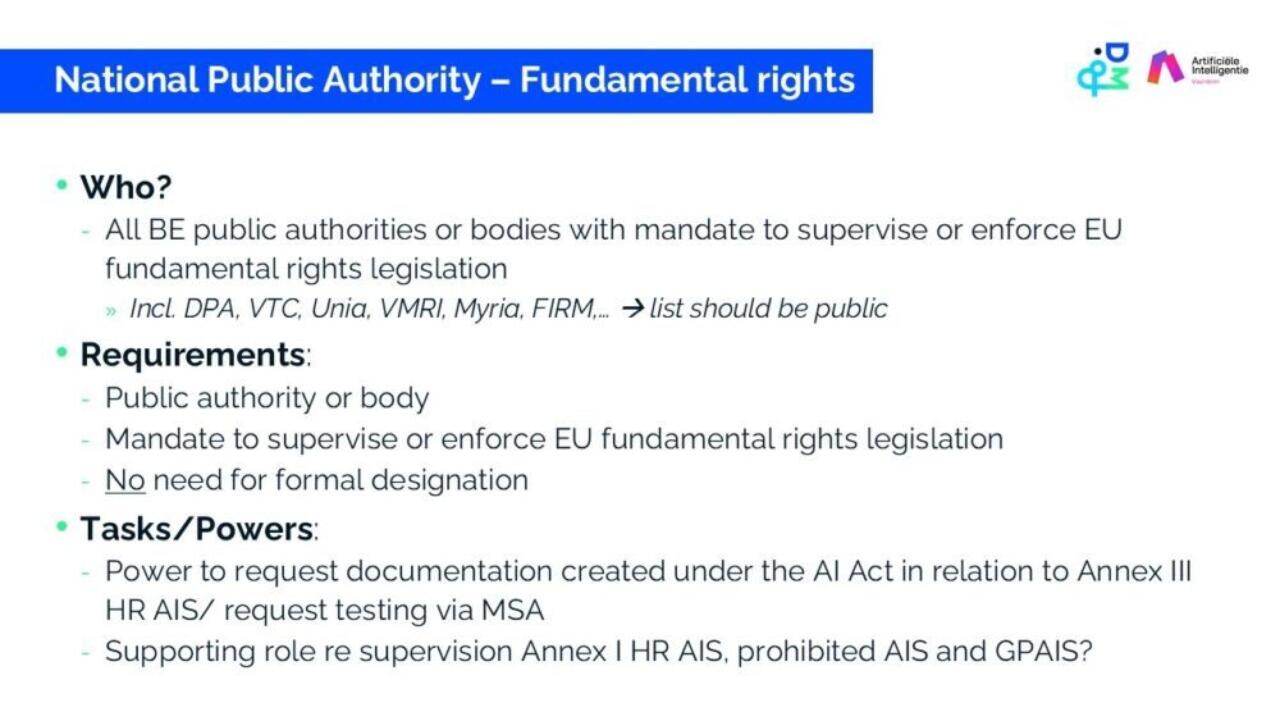Panel discussion
Following this presentation, a panel discussion took place between representatives from three relevant public authorities or institutions: Jessica Godoy Chaparro (Legal attaché, FPS Economy - Belgium), Simon Verschaeren (Policy officer, Department of Work, Economy, Science, Innovation & Social Economy of the Flemish Government, WEWIS), and Peggy Valcke (Executive Board Member, Belgian Institute for Postal Services and Telecommunications, BIPT). The Belgian Data Protection Authority was invited as well, but they unfortunately could not attend.
The panel discussion was structured around provocative statements to which the participants could reply. The statements are outlined below, together with the replies of the panelists.
First statement: a centralised enforcement structure should be preferred over a decentralised structure due to its substantive and practical benefits (incl. technical & human resources).
FPS Economy mentioned that a balanced approach to AI oversight should leverage both existing sectoral expertise and centralized AI-specific knowledge. Existing Market Surveillance Authorities (MSAs), such as the FPS Economy, have obtained sectoral regulatory expertise but may lack AI-specific expertise (e.g. on data governance, compute or cybersecurity). This was further illustrated by a reference to the Belgian Federal Agency for Medicines and Health Products (FAMHP) that can provide valuable insights into AI applications in healthcare, due to its background in medical devices. Centralisation should facilitate the creation of a hub of expertise (incl. personnel) to support sectoral regulators, who do have critical domain knowledge, while ensuring consistency in governance. The most effective solution likely lies in a hybrid model – one that enhances existing authorities with centralised AI expertise while preserving their deep sectoral understanding.
WEWIS agreed on the importance of sector-specific expertise, particularly when considering the integration of AI into different industries. However, AI is not only regulated by the AI Act but is also impacted by a broader legal framework. According to WEWIS the complexity is further heightened by Belgium’s state structure, requiring coordination between federal and regional authorities. To ensure legal clarity and effective enforcement, there should be a single authority with ultimate responsibility over AI oversight. However, regional governments should have the opportunity to shape AI oversight by adding specific accents or adapting it to local needs through regional initiatives. This layered approach could strengthen regulatory coherence while allowing for tailored interventions where necessary. In summary, coordination between federal and regional authorities is crucial.
Finally, BIPT remarked that they have been analysing the same questions as discussed in the KCDS’s policy brief including the question regarding (de)centralization, but that it used different criteria than those mentioned in the policy brief. They underscored the need for clarity, certainty, coherence, efficiency, effectiveness and innovation while ensuring the pragmatic use of resources. Where possible, authorities should collaborate and streamline efforts to avoid duplication. The AI Act primarily governs product safety regulation, focusing on technical standardisation, process documentation, and compliance supervision. At its core, AI regulation should ensure that products meet established standards before entering the market. However, existing legal frameworks such as the General Data Protection Regulation (GDPR) and consumer protection laws remain fully relevant and should not be sidelined. The European Data Protection Board (EDPB)’s statement on the topic should, however, be debunked (i.e. that data protection authorities should also be competent for AI Act supervision). BIPT argued that said approach would erode sectoral regulators’ competences. Instead, AI oversight should rely on existing MSAs under Annex I AI Act and financial regulators, with strong central coordination, rather than defaulting to data protection authorities. In conclusion, a nuanced, multi-layered model – where sectoral regulators retain their role but operate under central coordination – should ensure both regulatory clarity and practical enforcement. This was further corroborated by referring to the duty of sincere cooperation enshrined in article 4(3) of the Treaty of the European Union, as confirmed by the Court of Justice in the Bundeskartellamt-case.



















